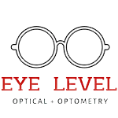
The Benefits of Blue Light Glasses: Do You Really Need Them?
Do you constantly stare at a screen and wonder whether blue light harms your eyes? With over 60% of adults spending more than 6 hours a day in front of digital devices, and nearly 90% of those reporting digital eye strain, the conversation around blue light glasses is becoming more relevant.
But are these glasses really essential? Some studies suggest they could improve eye comfort and overall health. Curious to know more?
Read on as we dive into the effects of blue light on your eyes and whether investing in blue light glasses is right for you.
The Effects of Blue Light on Eyes and Health
We all spend a lot of time staring at screens—whether it’s for work, entertainment, or just scrolling through social media. But have you ever noticed your eyes feeling tired, dry, or even a bit sore after a long day in front of your computer or phone?
That’s Digital Eye Strain, also called Computer Vision Syndrome. It’s super common, with around 50% of people who use screens reporting symptoms like headaches, blurry vision, and discomfort.
Blue light from your devices can make this worse by putting extra strain on your eyes, especially when you’re not taking enough breaks.
Then, there’s the issue of sleep disruption. Blue light actually messes with your body’s production of melatonin, the hormone that helps you fall asleep. That’s why using your phone or laptop late at night can make it harder to get a good night's rest. Even just a little blue light exposure before bed can throw off your sleep cycle, leaving you tossing and turning.
As for the long-term effects, the jury’s still out, but some studies suggest that too much blue light exposure over time could potentially lead to more serious problems like retinal damage. While there’s no need to panic, it’s definitely something to keep an eye on—no pun intended!
What Are Blue Light Glasses: How Blue Light Glasses Work
Blue light glasses are designed to filter out the harmful blue light emitted by digital devices. The lenses contain special filters that block or absorb blue light wavelengths, aiming to reduce the strain on your eyes. Scientific evidence supporting blue light glasses shows mixed results.
Some studies suggest a notable reduction in eye strain and improved sleep quality, while others argue that the overall benefit might be minimal for those without existing eye conditions.
However, anecdotal evidence often shows a significant improvement in eye comfort after using blue light glasses, especially for those spending long hours on screens.
Who Should Consider Using Blue Light Glasses?
Blue light glasses aren't just a trendy accessory; they can actually be pretty helpful for certain groups of people. First and foremost, frequent screen users are prime candidates.
If you spend hours each day working on a computer, watching TV, or constantly checking your phone, blue light glasses might be a game changer. Prolonged exposure to blue light can lead to eye strain, headaches, and even difficulty focusing.
So, if you’re feeling that familiar discomfort after long screen sessions, blue light glasses can help reduce the strain and make screen time more comfortable.
Another group that should consider blue light glasses is individuals with sleep issues. If you're having trouble falling asleep or staying asleep, your late-night screen use might be to blame.
Since blue light interferes with melatonin production—the hormone that regulates sleep—wearing these glasses in the evening can block that disruptive light and help you wind down more naturally, potentially improving sleep quality.
Lastly, people who are prone to eye strain, even outside of screen use, might find relief with blue light glasses. If you frequently suffer from dry eyes, headaches, or blurry vision after reading, working, or focusing on a task for extended periods, blue light glasses could offer some much-needed comfort.
They provide an easy, non-invasive way to shield your eyes from blue light and reduce symptoms of discomfort.
Do You Really Need Blue Light Glasses?
When weighing the cost-benefit of blue light glasses, consider how much time you spend on digital devices. For heavy users, the investment might provide noticeable relief from eye strain and better sleep.
However, for casual users, the benefits may not justify the cost. Individual lifestyle choices, like limiting screen time, adjusting lighting, or using apps that reduce blue light, are also important considerations.
Conclusion
Blue light glasses may not be necessary for everyone, but if you find yourself dealing with digital eye strain or disrupted sleep, they can provide real relief. By filtering out harmful blue light, these glasses help reduce discomfort and support better sleep quality.
Take a moment to reflect on your screen habits—if you frequently experience eye fatigue or struggle to unwind before bed, blue light glasses could make a noticeable difference.
Ready to give your eyes a break? Explore our selection of blue light glasses here and start seeing the benefits for yourself!

